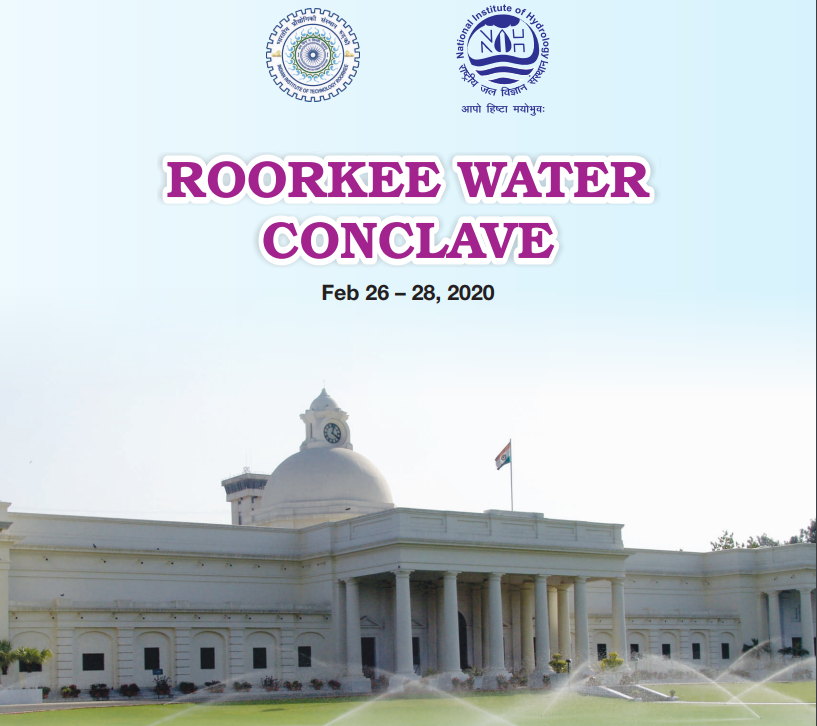
The Indian Institute of Technology Roorkee and the National Institute of Hydrology Roorkee jointly decided to organize regular international conference every 2 years in the area of various facets of water to be known as Roorkee Water Conclave. The present water conclave is being organized broadly focusing on "Hydrological Aspects of Climate Change".
Climate change and its impact on water sector are the most critical global challenge in current century. It is likely to be more severe in developing countries whose economy is largely dependent on the agriculture and is already under stress due to population increase and associated demands for energy, fresh water and food. Climate change poses uncertainties to the supply and management of water resources. The Intergovernmental Panel on Climate Change (IPCC) predicted an increase of temperature about 2o to 4o C over the next 100 years. As a result, the various components of hydrologic cycle would be affected causing considerable changes in the precipitation characteristics, evapotranspiration, runoff patterns, snow & glacier melts, recharge to the ground water etc. Consequently, these changes can indirectly affect the flux and storage of water in surface and subsurface reservoirs (i.e., lakes, soil moisture, and groundwater). In addition, there may be other associated impacts, such as acceleration of floods & drought, seawater intrusion, water quality & environmental deterioration, potable water shortage, etc.
In order to minimize the adverse impacts of climate change on country's water resources and attaining its sustainable development and management, there are needs for developing the rational adaptation strategies and enhancing the capacity to adapt those strategies. It would provide the means for alleviating the negative impacts of climate change. The risk, reliability and uncertainty analysis are must before deciding the adaptation strategies. Keeping in view, the importance of impacts of climate change, it is necessary to identify the key issues and challenges, which the expected climate change will bring in water resources planning, design and management, provide the framework for adequate research, and formulate recommendations for the future work.


